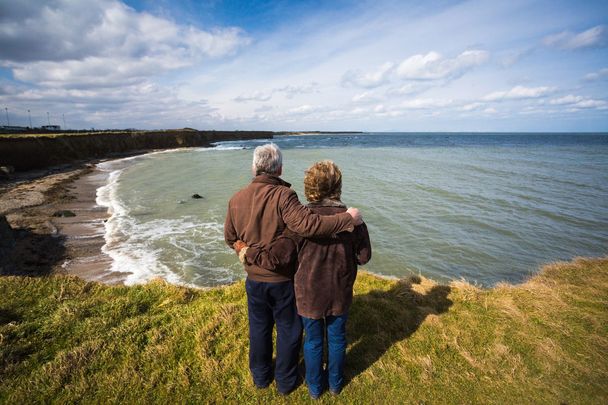Do you have a dream of spending your golden years in the Emerald Isle? Check out IrishCentral's guide on how to do it!
Anyone wishing to retire to Ireland must be financially independent and must meet all financial requirements set out by the Irish Government.
People who require a visa to retire in Ireland must apply for a D-Reside visa before arriving in the country in addition to applying for Stamp 0 before arriving in Ireland.
The Irish Government states that anyone wishing to retire in Ireland must have an individual income of €50,000 per year and must also have access to a lump sum to cover any sudden major expenses. The lump sum should be equal to the price of a residential dwelling in Ireland.
Anyone who retires to Ireland is not eligible to receive state benefits and therefore must be able to support themselves financially.
Applicants are required to provide independent verification that they comply with all financial conditions. The verification must be certified by an Irish accountancy firm.
Financial documentation should be presented in euros and should clearly show all income and expenditure each month.
Anyone wishing to retire in Ireland must apply for Stamp 0, regardless of whether they require a visa or not.
Those wishing to apply should download an application here and then send the completed form to the following address:
Stamp 0 – Independent Means Section
Unit A – Domestic Residence and Permissions Division
Immigration Service Delivery
Department of Justice
13-14 Burgh Quay
Dublin 2 D02 XK70
Ireland
Successful applicants will receive a Conditional Letter of Offer and an Agreement Form from the Domestic Residence and Permissions Division.
Those who require a visa to retire in Ireland are also required to apply for a D-Reside visa once they have received their Conditional Letter.
Anyone wishing to apply for a D-Reside visa can do so by clicking here. All applications must include a Conditional Letter.
Once a person has arrived in Ireland, they should send their passport and a signed Agreement Form to the same address as above. The Agreement Form will be sent to applicants along with the Conditional Letter of Offer.
The Irish Government's Domestic Residence and Permissions Division will add a stamp to the applicant's passport and return it to them.
Finally, once an applicant is granted permission to live in Ireland, they must visit a registration office in Dublin or a local Garda station outside of Dublin to register their permission.
Anyone wishing to retire in Ireland will need several documents, including a clear and legible copy of their passport and a copy of their birth certificate.
They will also need a copy of their marriage certificate if they are married and a document explaining their reasons for applying.
Furthermore, they will have to provide details of all family members currently residing in Ireland, details of Irish associations, a Health Declaration, a Police Clearance Certificate, and evidence of private medical insurance.
Evidence of all available finances (six months of bank statements) and evidence of finances verified by an Irish-based accountant are also required.
Finances must be in the form of pension incomes or readily accessible funds. Investment funds are not normally measured.
Find out more at www.irishimmigration.ie.




Comments